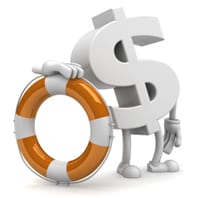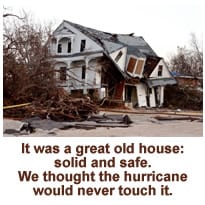 I have no idea what is going on with the weather around here. First, we start the year with a record number of snow storms and now the rain. What are we supposed to do? We need to be prepared for whatever weather comes our way.
I have no idea what is going on with the weather around here. First, we start the year with a record number of snow storms and now the rain. What are we supposed to do? We need to be prepared for whatever weather comes our way.
How can you prepare?
Start by talking with your insurance company and/or agent and discuss what your insurance covers and what it doesn’t. You should be doing this every couple of years. If you can’t remember the last time you did this, then it’s time. You may find that you need to add or increase certain coverage. You should also discuss flood insurance. It doesn’t cover everything and usually has a high deductible, but you might regret not having it.
Next, do you have emergency supplies in your home? If you lose power, do you have lanterns (better than candles and not a fire hazard), battery operated items (radio, can opener ) barbeque grill for cooking, full tank of gas for your car (gas stations can’t pump gas without power), emergency cash on hand, etc. Do you know where these items are? I keep mine all together in one basket.
If you had to evacuate your home in a short period of time, do you know what you would need to take with you? You should have your important papers and records in one easy-to-grab place so you can get out fast.
Being prepared ahead of time makes it easier to ride out a storm in comfort or evacuate your home quickly.

 We all know we should have flashlights with new batteries, manual can opener, candles etc but do you follow the advice?
We all know we should have flashlights with new batteries, manual can opener, candles etc but do you follow the advice?



